5 Ways Facebook and Instagram Help You Find More Patients
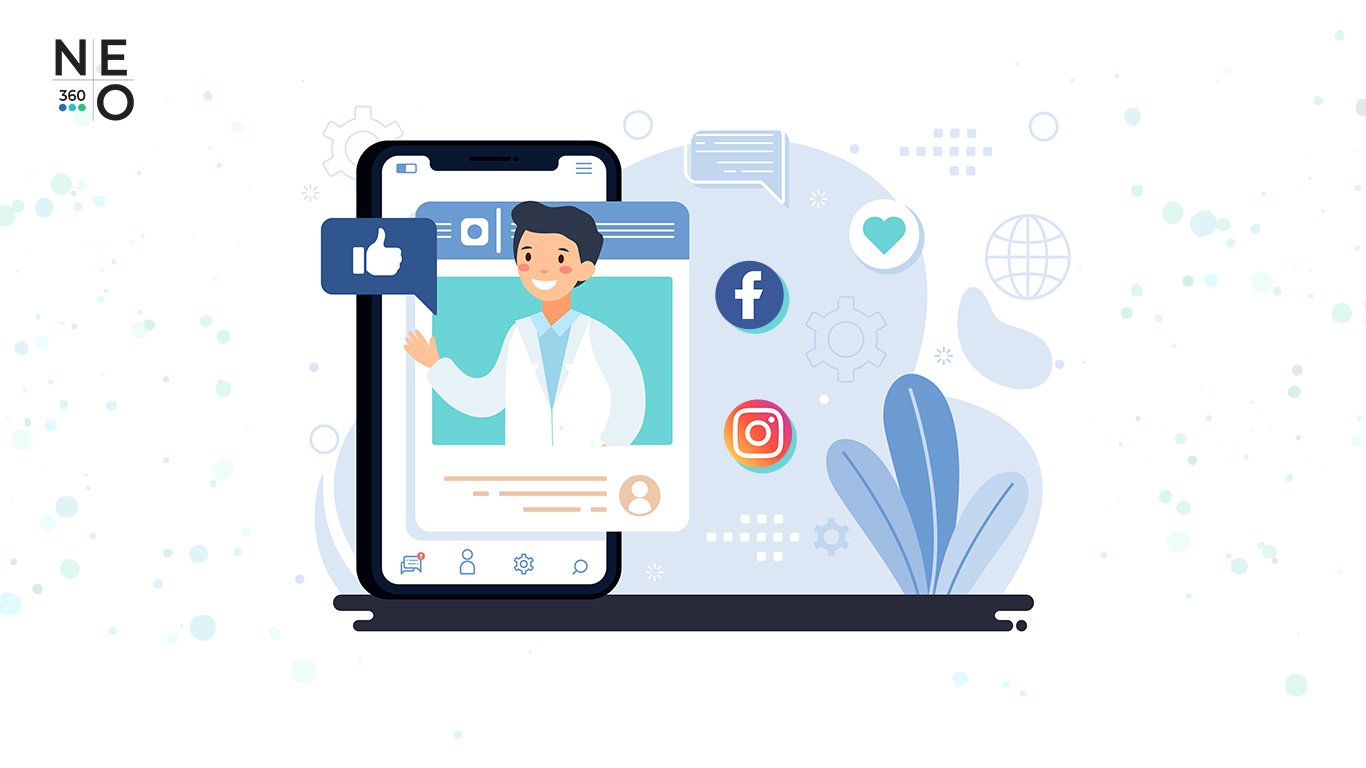
Social media isn’t just for selfies, showing off, and relationship statuses. If you own or manage a medical practice, it can do arguably the single most important thing you need to do if you want to succeed—get patients to come and see you.
After all, you can’t help anybody if nobody’s booking a consult, and you can’t save lives if there’s nobody there to save.
These days, social media is one of the best ways to get people to queue up in your waiting room. And of all social media platforms, Facebook and Instagram are arguably two of the best there are for attracting potential patients.
But don’t take our word or even the general consensus for it—a quick look at some numbers says as much, as well:
- Over 2 billion people are on Facebook, and among them are people in need of your services
- Some 500 million people are on Instagram, many of whom are younger and female
- Almost 90% of seniors have used social media to look for healthcare information
- 41% of people admitted that social media swayed their choice of a doctor or practice
Sources: Facebook, Statista, JMIR Publications, Spark Report
A report by Deloitte also notes how social media gives healthcare organisations the means to keep tabs on the consumer experience they provide, and how healthcare providers are increasingly using it to build awareness for themselves.
Read on to learn five ways Facebook and Instagram help you find more patients, so you can start helping even more people with your healthcare services.
Facebook and Instagram helps you find more patients by allowing you to…
1. Reach potential patients where they want to be reached.
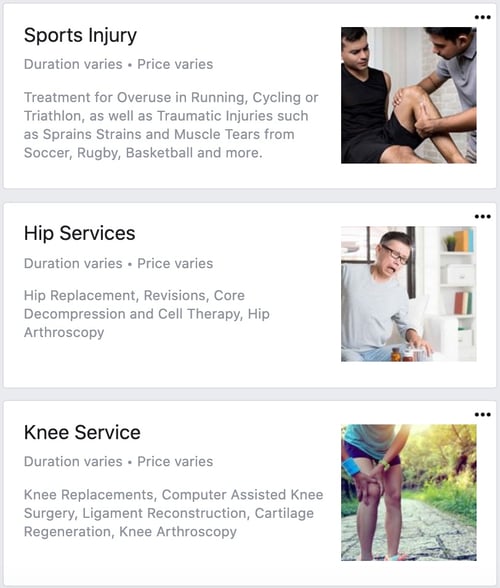
Long gone are the days when consumers (of healthcare or any other products or services) “had no choice” but to follow where marketers led. That was mainly because marketers were where the shows they wanted to watch were broadcasted, the music they wanted to listen to was aired, and the stories they wanted to read were published.
Now, we live in an age where marketers have no choice but to follow consumers wherever they wanted to be reached. This is mainly because digital media has widened the playing field to such an extent that there’s no guarantee that consumers are right where marketers can expect them to be at any given time.
Consumers now watch, listen or read what they want to when and where they want to, and not when, say, a programme producer broadcasts or a newspaper or magazine publishes something according to their fixed schedule.
Social media in general and Facebook and Instagram in particular make it possible for you to reach potential patients where they want to be reached because they choose to spend their time on these platforms more than others.
Once you’ve reached them on FB and IG, you can let them know you exist, show them where your clinic is, and tell them what you can do to help them as a healthcare provider.
2. Demonstrate your relevance and establish your authority.
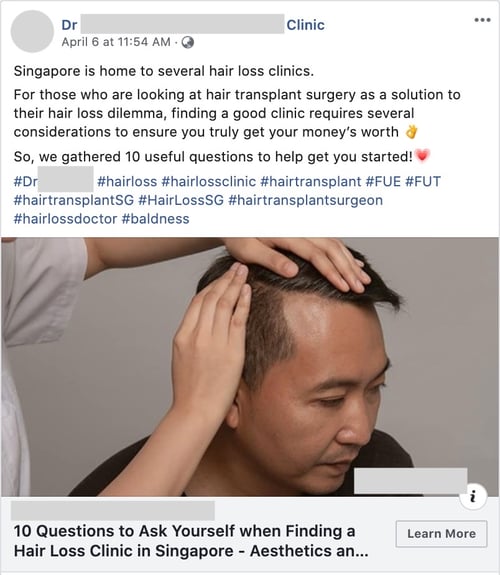
Now that they know your medical practice is out there, you can show your potential patients why they should go to you (and not your competitors, who most likely offer the exact same healthcare services you do).
You can do this on Facebook and Instagram by educating or informing your patients. Whether it’s a video, an infographic, or a straight-up photo post, the quality of the specialised knowledge you share can show potential patients that you’re an expert in your field, and as such, can be trusted with their health and well-being.
After all, you wouldn’t put your life into the hands of someone who didn’t look like they knew what they were doing, would you?
But it’s not just about showing off how much you know. Sharing helpful information also shows potential patients that you understand what they’re going through, you’re aware of current events that affect their health, and that you’re capable of meeting their healthcare needs in relation to these issues.
Sharing helpful information also includes countering misinformation or setting the record straight—not just against fake news but also outdated info or the kind of hearsay or old wives’ tales about “miracle cures” and so on. Not only do you position yourself as an authority, but you demonstrate your expertise in a way that benefits the public, which the public appreciates.
3. Give potential patients a chance to engage with you even before they visit.
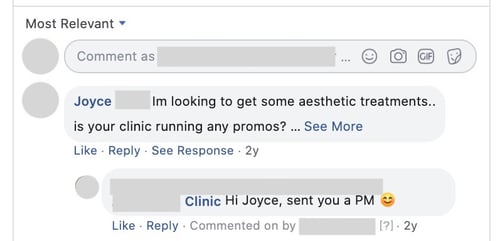
For many people, seeing a doctor—especially for the first time—is a major life decision. Allowing potential patients to reach out and interact with you on Facebook or Instagram gives them a chance to get a glimpse, however brief, of what it’s like to see you in person.
A practice that replies quickly and politely to comments or queries made on their posts or via Facebook Messenger or Instagram Direct is more likely to encourage a potential patient to visit them versus one that is slow to respond.
Because an actual visit involves an investment of a person’s time and resources, potential patients are more likely to “collect, then select” their options online instead of going “clinic-hopping” before settling on a healthcare provider. Comments and IM’s are a non-committal way for them to check you out before you check them out.
But probably most important of all is how engaging with them in this manner shows potential patients that you care and that you’re ready to help them get better. It makes sense for doctors whose posts, comments and replies express empathy for what a person is going through and offer support and encouragement to be far more likely to attract new patients.
Make sure that the “pre-visit” experience on Facebook or Instagram matches or segues seamlessly to the actual customer or patient experience, especially during the first consult.
4. Show potential patients positive testimonials or reviews.
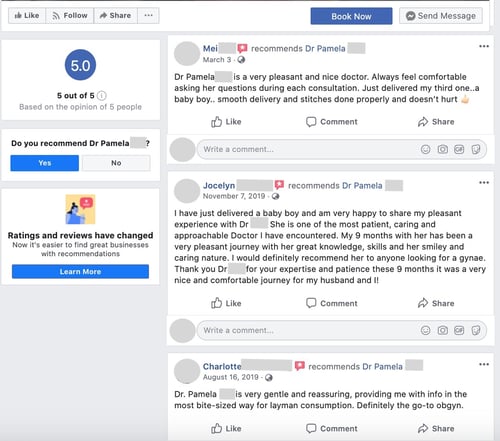
When was the last time you said thank you to someone who’s helped you out of a tight spot? And you were so grateful, you were more than happy to let everyone know just how much you appreciate that someone’s help?
Few spots in life are tighter than a serious illness or a chronic condition, and patients on the receiving end of truly caring and effective treatment often don’t need to be asked for testimonials. They usually just give them on their own.
Reviews on Facebook or testimonials in the comments on both Facebook and Instagram can be far more powerful than any post or ad your practice can publish. Potential patients looking for a doctor or a clinic to help them are more likely to believe reviews from family or friends, or even from complete strangers, than anything a clinic says about itself.
According to statistics collated from Big Commerce, Nielsen, and Vendasta by video testimonial platform, Boast,
- 92% of customers read online reviews prior to purchasing
- 88% of consumers give the same decision-making weight to testimonials and reviews as they would to recommendations from family or friends
- 88% of consumers says reviews sway their buying decisions online
- 72% of consumers say positive reviews and testimonials make them trust a business more
- 70% of people trust recommendations and reviews from people they don’t even know
Because of the amount of time your potential patients spend on FB and IG, you’re arguably more likely to receive positive comments from them there than you would on your website or elsewhere online such as Google My Business.
And even if those reviews or comments should turn out to be not quite the kind you were hoping for, those comments give you a chance to address those issues in public. More importantly, they also give you the opportunity to show potential patients that you do take everyone’s feedback seriously and that you take steps to act on it.
5. Reach potential patients through their own networks.
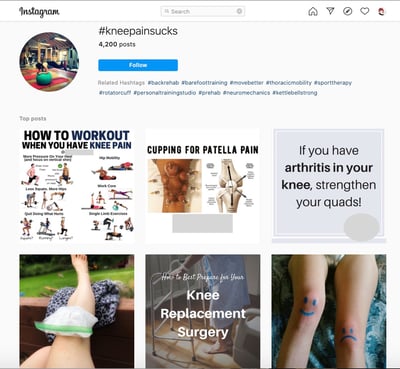
Sharing is caring, as the saying goes, and when people come across something in their FB and IG feeds that’s particularly helpful—whether it’s in a practical or inspirational way—they’re more likely to share it.
Wouldn’t it be great if what they shared with their followers had your name on it?
In this respect, Facebook and Instagram make it easier for you to reach even more potential patients by making easy for your current patients to share your messages with their own family and friends.
People suffering from a specific illness or condition or who are undergoing the same treatment are also likely to band together on FB and IG. This potentially widens your reach if someone belonging to a relevant group shares your content with them.
When used thoughtfully, hashtags on Facebook and Instagram also help you to reach more potential patients by facilitating content sharing for you and your supporters. Instagram, in particular, can be effective for sharing content with the aforementioned groups when using hashtags such as #kneepainsucks or #morningsickness.
Find more patients on Facebook and Instagram the right way.
The beauty of attracting potential patients, or leads (as they’re termed in marketing parlance) on Facebook and Instagram is that there’s a good chance that these leads could be high quality (or more likely to become actual patients).
If these leads were encouraged to reach out to you because of your FB and IG presence, it’s highly likely that they’ve seen enough about you (and what people have said about you) to convince them to check you out.
It’s just as likely that they’ve also compared your content to that of your competitors, and yet chose you to enquire from (if not you alone, at least you as part of a shortlist of possible options).
Using social media to generate more quality leads is usually covered by laws that regulate marketing communications for healthcare providers. In Singapore, for instance, we have the Private Hospitals and Medical Clinics (PHMC) (Advertisement) Regulations; in Australia, we have the regulations from the Australian Health Practitioner Regulation Agency (AHPRA).
So while there are ways for Facebook and Instagram to help you attract more patients to your practice, it’s imperative to make sure that everything you post complies with the regulations of the country you’re practising in.
Even if it may seem like healthcare service providers and professionals are becoming more and more adventurous with their activities on social media, the thought that “anything goes” when it comes to your FB and IG posts just isn’t true.
Digital marketing agencies with experience in helping healthcare professionals and medical practices attract more patients are fully aware of just how powerful Facebook and Instagram can be, and can best advise you on making the most your of social media.
Get in touch with us today to leverage our experience in using Facebook and Instagram for helping doctors and medical practices just like yours to help more people stay healthy and feel great.
About the Author
Managing Director
A Mechanical Engineer by training who graduated from the Nanyang Technological University. With over 15 years of experience working in Start-Ups, SMEs and MNCs, he has driven sales revenue and leads across the Asia Pacific region. Shei Wah was one of the SEO Speakers at the first Search Engine Strategies Conference 2011 held in Singapore. As Managing Director, he aims to establish NEO360 in all of the world’s major cities. Even as he works toward this goal, Shei Wah also dreams of his children’s future happiness, and unwinds by doing calisthenics with his former school buddies three times a week.




